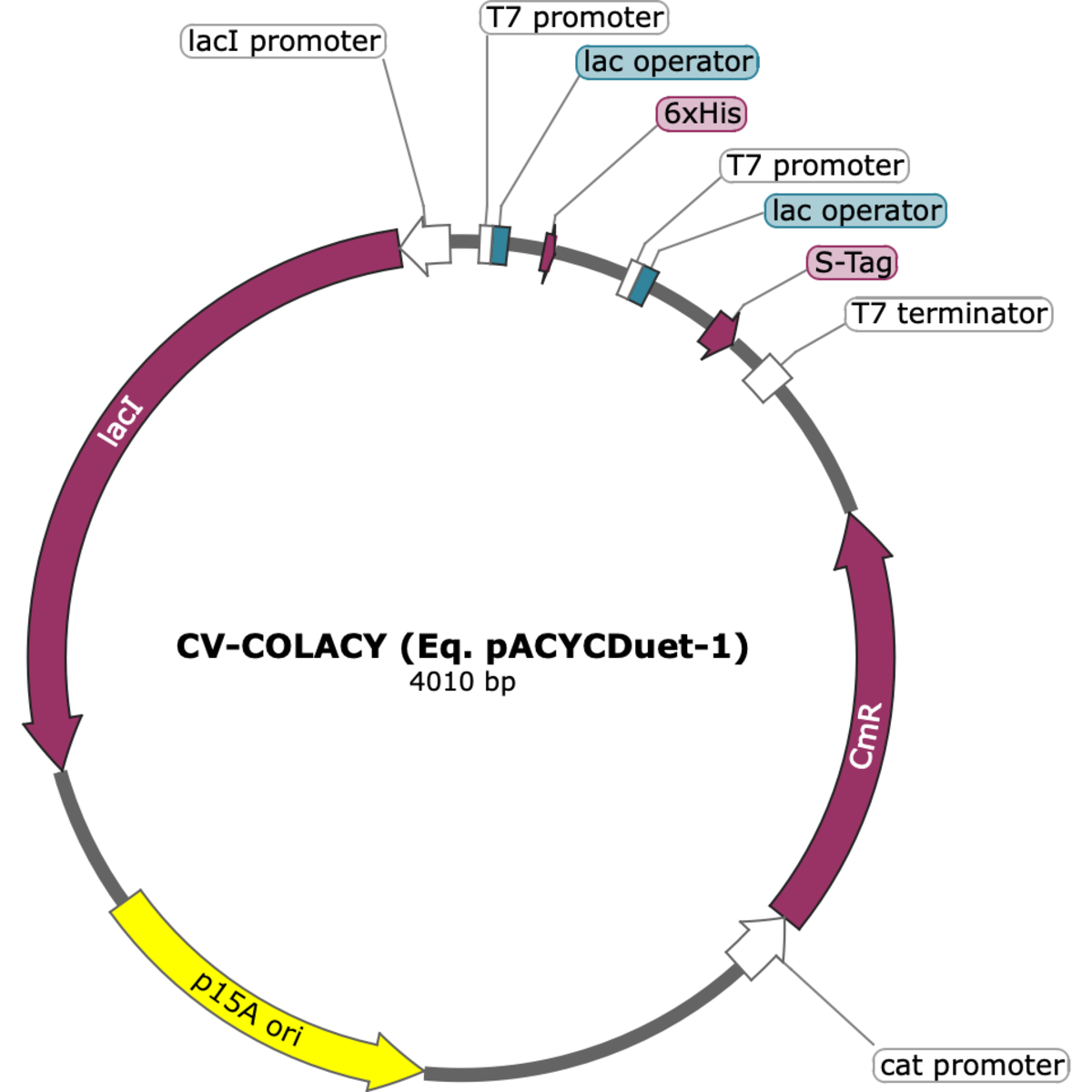CV-COLACY (Eq. pACYCDuet-1)
CV-COLACY (Eq. pACYCDuet-1)
CV-COLACY has a sequence identical to the pACYCDuet-1 co-expression vector. This low-copy plasmid carries a chloramphenicol resistance marker and a p15A origin of replication, and features two multiple cloning sites, each driven by its own T7 promoter, enabling coordinated expression of two target genes in E. coli.
Format: 2 tubes with 5 µg in 5 µl of TE
Couldn't load pickup availability
Key Properties
Applications: Bacterial Expression
Copy number: Low copy number
Expression: Constitutive
Host: E. coli
Selection markers: Chloramphenicol (E. coli)
Sequence: CV-COLACY_Eq._pACYCDuet-1.gb
Share

Background
pACYCDuet-1 was introduced by Novagen as part of the Duet™ vector series to facilitate co-expression of multiple genes in E. coli. CV-COLACY preserves the exact pACYCDuet-1 sequence, maintaining compatibility with protocols and literature that rely on this vector. Documentation can be found in the original Novagen manuals: pACYCDuet-1 Vector Manual (PDF) and Duet Vectors Protocol TB340 (PDF).
Features
- Antibiotic selection: Chloramphenicol (cat)
- Origin of replication: p15A (low copy, ~10–12/cell)
- Size: 4.2 kb
- Expression system: Two T7 promoters, each with its own ribosome binding site and multiple cloning site
- Compatibility: p15A origin allows co-maintenance with ColE1-derived vectors (e.g., pUC, pBR322 derivatives) in the same cell
Applications
- Co-expression of two recombinant proteins in E. coli
- Multi-subunit enzyme or protein complex assembly
- Metabolic engineering experiments requiring balanced expression
- Protein–protein interaction studies
- Compatible use with other vectors for multi-plasmid systems
Limitations
- Requires a host strain expressing T7 RNA polymerase (e.g., BL21(DE3))
- Medium copy number yields less plasmid DNA than ColE1-based high-copy vectors
- No intrinsic regulatory system beyond T7 promoter (risk of basal expression)
- Not suitable for non-E. coli expression systems
